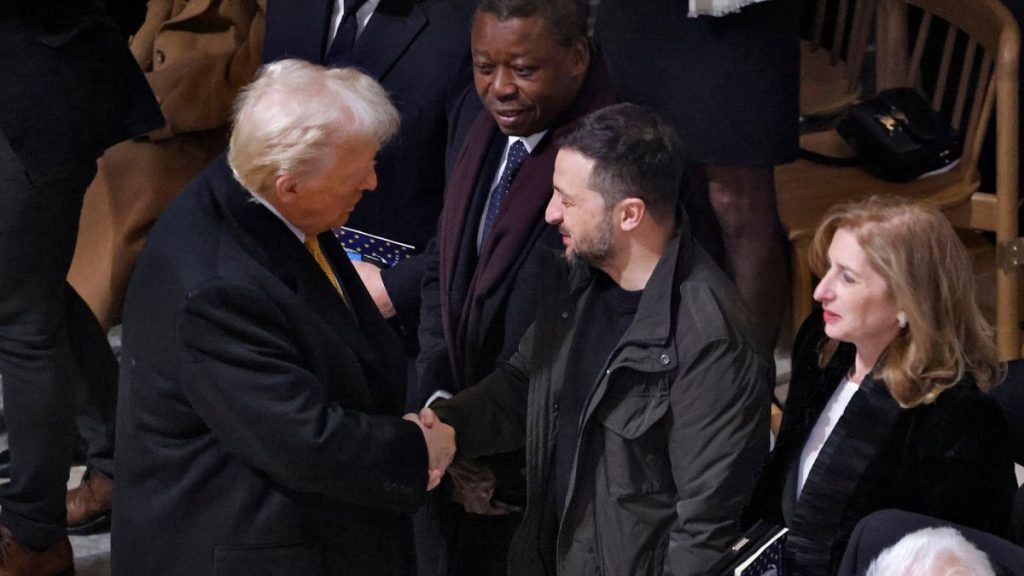Donald Trump’s recent pronouncements on the war in Ukraine, NATO, and US foreign policy have ignited a firestorm of controversy, raising concerns among allies and security experts. His call for an immediate ceasefire in Ukraine, coupled with suggestions of reducing US military aid to the country and reconsidering NATO membership, paint a picture of a potential foreign policy drastically different from the current administration’s approach. These statements, delivered just weeks before he is set to reassume the presidency, have underscored the unpredictable nature of his foreign policy vision and its potential ramifications for global stability.
Trump’s assertion that he is actively working to end the conflict in Ukraine, even before officially taking office, has raised eyebrows. While he claims to be pursuing a negotiated settlement, his refusal to disclose details of his communication with Vladimir Putin fuels speculation and uncertainty. His proposal, advocating for an immediate ceasefire and the commencement of negotiations, seemingly echoes Russia’s narrative and overlooks the complexities of the conflict, including Russia’s role as the aggressor and Ukraine’s legitimate right to self-defense. The emphasis on China’s involvement in mediation further complicates the matter, given Western concerns about Beijing’s perceived bias toward Moscow.
The implications of Trump’s stance on Ukraine extend beyond the immediate conflict. His suggestion that US military aid to Ukraine might be reduced raises serious questions about the future of US support for a key ally facing Russian aggression. This potential shift in policy could significantly weaken Ukraine’s defense capabilities and embolden Russia, potentially altering the balance of power in the region. Moreover, Trump’s willingness to reconsider US membership in NATO, conditional on allies’ military spending, introduces uncertainty into the transatlantic alliance, potentially undermining its cohesion and effectiveness in deterring aggression.
Trump’s justification for a potential NATO withdrawal hinges on the perceived inadequacy of allies’ defense spending. While he acknowledges that NATO members have increased their military budgets, partly due to pressure during his previous term, he insists on full compliance with spending targets. This transactional approach to alliances raises concerns about the US commitment to collective security and the potential for abandoning allies who fall short of arbitrary benchmarks. Such a move could weaken the alliance structure and embolden adversaries seeking to exploit divisions within the Western bloc.
The skepticism surrounding Trump’s ceasefire proposal is widespread. Security experts, including retired Lieutenant General H.R. McMaster, Trump’s former national security advisor, have expressed doubts about the feasibility of a quick resolution, warning against appeasing Putin. They argue that providing Ukraine with the necessary means to defend itself and demonstrating resolve against Russian aggression is a more effective approach. The contrasting perspectives on resolving the conflict highlight the fundamental differences between Trump’s approach, which prioritizes rapid deals, and the current administration’s strategy, which emphasizes supporting Ukraine’s defense and deterring further Russian aggression.
Trump’s statements about the war in Ukraine, NATO, and US military aid represent a significant departure from established foreign policy norms and have generated widespread apprehension. His focus on immediate ceasefires and transactional alliances, coupled with his willingness to reconsider long-standing commitments, raises concerns about the predictability and stability of US foreign policy under his leadership. The potential consequences of these policy shifts are far-reaching and could have a profound impact on global security and the balance of power in key regions. The international community will be closely watching Trump’s actions in the coming weeks and months, seeking clarity on his foreign policy intentions and their implications for the future of international relations.

